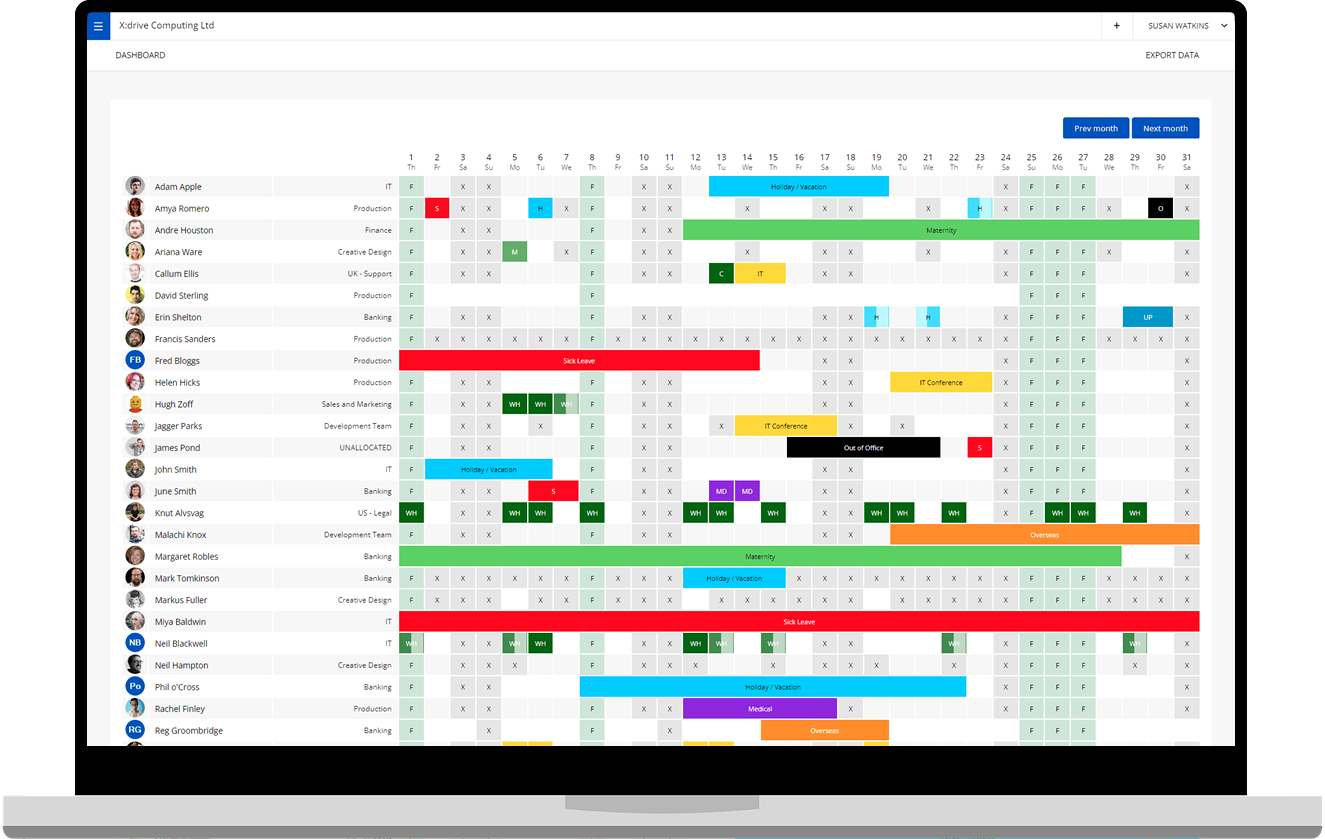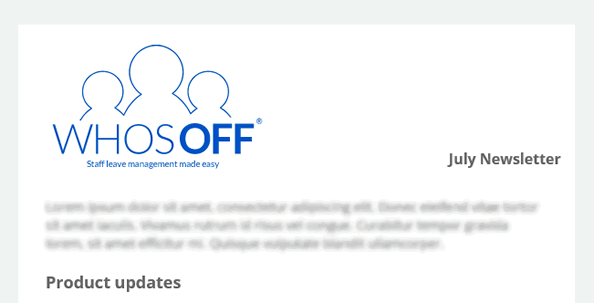Most employers are good at supporting people’s physical wellbeing, but can the same be said of their mental health? How approachable is your business when your team are struggling with stress, anxiety, depression or other issues?
A new report by the Mental Health and Income Commission has revealed that people with mental health conditions earn £8,400 less than those who aren’t affected on average. And they’re also likely to have trouble accessing higher paid jobs.
In order to break down this divide and create fair opportunities for all employees, there are many initiatives your company can introduce to improve mental health support. To set you on the right path, here are 7 strategies you might want to consider...
1. Start open conversations about mental health in the workplace
One of the main issues in current business culture is that mental health discussions often take place behind closed doors, between the affected employee and their manager or HR. This can leave co-workers feeling like they’re the only one struggling – when in reality, 1 in 4 people experience some form of mental health problem each year in the UK.
Opening up the conversation in a sensitive, respectful way can break down taboos surrounding living and working with mental health challenges. Broach the topic by sharing links to insightful articles; offering tips for lowering stress and anxiety at work; and promoting positive, supportive values in the workplace.
Most importantly, make sure staff know that you view mental and physical health as equally important, and that they are welcome to speak with you confidentially if they have any concerns. You may even want to appoint ‘mental health champions’ as a first port of call, in case people don’t feel comfortable talking to their line manager.
2. Teach colleagues to recognise the signs of declining mental health
It’s quite easy to see if someone is hurt or sick, but it’s much harder to spot the signs of poor mental health – especially over the past 12 months, when most people have been working from home.
Sometimes missing deadlines or ‘difficult’ behaviours can be a sign that someone is struggling. A good employer helps the person affected to recognise that they need support, and trains senior colleagues to see the signs of declining mental health, so they can gently broach the subject with that member of staff.
Regular webinars and workshops on emotional wellbeing can help your workforce to understand the difference between a bad day at the office and something more serious or longer-term. And make sure that you offer follow-up training to managers and team leaders, so they can identify when further support is needed and step in with an appropriate response.
3. Tackle the sources of workplace stress
While office culture isn’t always the root cause of someone’s mental health condition, it can contribute to it. It’s useful to understand how you can adapt everyday practices to support staff wellbeing, particularly reducing workplace stress and anxiety.
At a company level, you can roll-out stress management tools like access to mindfulness apps, group meditation sessions or talks from industry experts. However, everyone’s mental health challenges are unique – so truly tackling the issue means looking at ways to optimise people’s individual working arrangements.
For example, some people thrive in an office environment, whereas others are most productive when working from home. Some find it easy to get up and get on with work in the morning, but others struggle to pull themselves together until later in the day. Having open, honest conversations with team members about how you can mitigate their workplace challenges will help to lower their stress levels, and improve their professional performance.
4. Give struggling staff the space to take time off sick
While taking steps to reduce stress will help some employees keep their mind and their mood elevated, you may have team members who are struggling with serious ongoing mental health conditions. Many of these employees worry about being unsupported by their employer as much as their actual diagnosis.
We already mentioned how important it is that your business treats physical and mental health equally – and this needs to show in your corporate policies. For example, paid sick leave should include mental health conditions, so staff feel able to take time off to recuperate.
As an employer, it’s also critical you make sure there is adequate cover when team members are struggling with mental health problems. The last thing that person wants to come back to is the stress of an overflowing inbox.
To avoid this scenario, many companies use leave planning software to look at the impact of staff sick leave, and to redistribute work among colleagues who are still available.
5. Put a programme in place to support their return to work
On the subject of returning to work, how you manage someone’s reintegration after time off due to a mental health condition can hugely impact their recovery. Team members may not be ready to resume their full-time role after a few days off; others may worry about judgement or badly-pitched questions from their work colleagues.
Rather than going straight back to full pace, you might want to discuss a phased return to work. Initiatives could include splitting time between home working and office-based responsibilities, or gradually building up someone’s hours over the course of a few weeks.
While a gradual return will have a short-term impact on resourcing, there’s less chance that team members will become overwhelmed and need to take further time off sick. And with online leave management software in place, their phased return can be documented and supported by other staff.
6. Introduce personal days alongside annual leave
The drain of poor mental health isn’t always something that warrants long periods of sick leave. However, your team may benefit from the option to take a day off to rest and recharge from time to time – or to seek further support.
Introducing personal days to your leave entitlement gives people the option to take time off when things are becoming too much, no questions asked. And sometimes a day’s break can give them the energy to return to work in a better frame of mind – rather than the daily grind contributing to a deeper mental health crisis.
As with any type of leave, if you’re going to start offering people additional time off, it needs to be managed effectively to avoid staffing issues. And an online holiday calendar can support in this scenario too, as you’re able to log people’s personal days and track them alongside their paid leave entitlement.
7. Focus on the person, not the condition
Some people are happy to openly talk about their mental health; others prefer to keep it private. Either way, very few people want to be defined by it.
If you’re running a fair, compassionate business, there is no reason why someone who is struggling with their mental health should end up earning less or getting left behind. With the right strategies in place, you can create a company culture that keeps stressors to a minimum, and supports people when they are suffering, to help them recover and thrive at work.
We’ve made multiple suggestions for what these strategies could be, and several of them involve investing in leave management software. Poor mental health costs UK employers £33-42 billion annually; for the fractional cost of an online holiday calendar, you could avoid contributing to this statistic.
More importantly, you could invest in the digital tools your team needs to improve mental health support. Put new HR and admin software in place makes it easier to give staff the time off they need when they’re struggling to cope. And it also makes sure that the impact of people’s absences doesn’t put unnecessary strain on other team members.

WhosOff is an online leave management system that enables companies to coordinate all types of absence – including sick leave and personal days – in one place. Start your free WhosOff trial to find out more.
Similar articles
10.APR.2025
As a business owner, HR manager, or professional responsible for managing a team, one of the key tasks you will face is understanding and planning for the number of working days in a year and working weeks in a year. Using an online leave management tool such as WhosOff can relieve some of this burden.
01.APR.2025
As the new financial year begins, businesses are gearing up to streamline operations, optimize resources, and ensure smooth workflows. One critical aspect of this preparation is managing staff leave effectively, here's where WhosOff can help.
28.JAN.2025
As a fundamental part of any business running smoothly, the management and tracking of staff leave is often a task that can be overlooked but can have a major impact on operations when things go wrong.
16.OCT.2024
Learn how our customers have accelerated their internal business processes by integrating with the WhosOff API to manage their staff leave and absence tasks.


